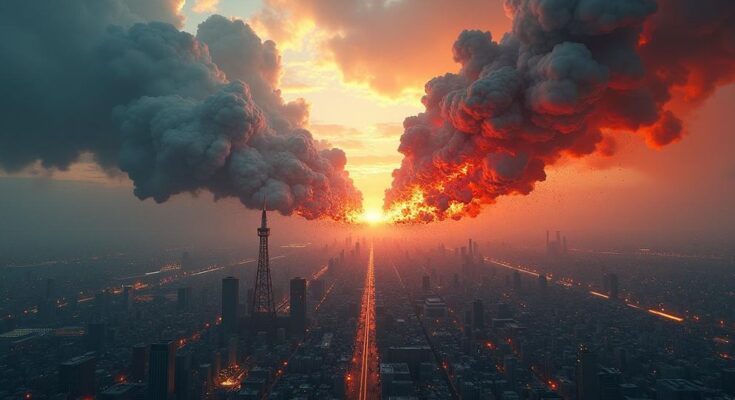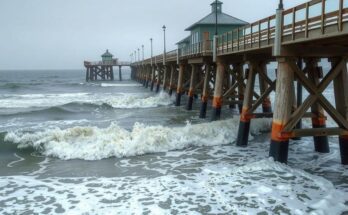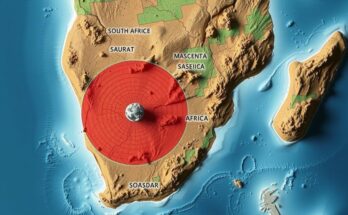This article examines the escalating global tensions from revisionist powers in the Middle East, Europe, and Asia, suggesting we are in one of the most perilous moments since the Cold War. Iran is exerting pressure in the Middle East, Russia challenges European stability through its aggression in Ukraine, and North Korea adopts an increasingly belligerent posture towards the South. The potential alliance among these powers further complicates the international landscape, necessitating a coordinated and strategic response from the United States and its allies to preserve global order.
As global tensions escalate, the current international climate presents one of the most hazardous situations since the Cold War, characterized by aggressive actions from revisionist powers in three key regions: the Middle East, Europe, and Asia. In the Middle East, Iran is employing asymmetrical warfare through various militias, including Hezbollah and Hamas, significantly pressuring its adversaries, Israel and the Gulf States. The ramifications of this conflict are evident, as trade routes have been disrupted and airline operations affected, illustrating the delicate state of security in the region. In Europe, Russia’s invasion of Ukraine emerges as a traditional military conflict undermining the post-World War II security framework led by the United States. President Vladimir Putin’s ambitions extend beyond Ukraine, potentially threatening countries like Georgia, Moldova, and even nations within the Baltic states. Meanwhile, Asia faces a different threat, with North Korea’s nuclear capabilities being intensified under Kim Jong Un, who has shown increasingly aggressive posturing towards South Korea. The situation in Asia is further complicated by China’s growing assertiveness in its quest for global supremacy, particularly regarding territorial claims surrounding Taiwan and the South China Sea. Collectively, these regions demonstrate a troubling realignment of powers, as nations such as Iran, Russia, North Korea, and China appear to coordinate their efforts, sharing resources and knowledge to bolster their military capabilities. To counteract these developments, the United States and its allies must cultivate unity and strategically exploit historical rivalries within this coalition of disruptive states. The importance of diplomacy and a nuanced approach remains paramount as the U.S. navigates this precarious international landscape.
The article discusses the dangerous geopolitical landscape that the international community is currently facing, comparing it to the period of the Cold War. It highlights the tensions arising from Iran’s strategies in the Middle East, Russia’s military actions in Europe, and North Korea’s advancing nuclear program in Asia. Furthermore, it emphasizes the possibility of a collaborative effort among revisionist states, which poses a direct threat to global stability. This backdrop serves to illustrate the urgent need for a strategic response from the United States and its allies to address the multifaceted challenges presented by these aggressive regimes.
The present era marks a significant global crisis as three regions— the Middle East, Europe, and Asia—are rife with escalating tensions from revisionist powers. A confluence of conflicts threatens the post-World War II international order, necessitating a united and strategically complex response from the United States and its allies to deter these emerging threats. The success of this diplomatic endeavor will depend on the ability to leverage internal divisions within the grouping of hostile states while fostering a cohesive front to uphold international stability.
Original Source: www.washingtonpost.com




